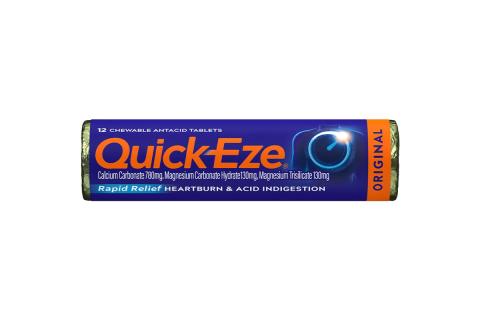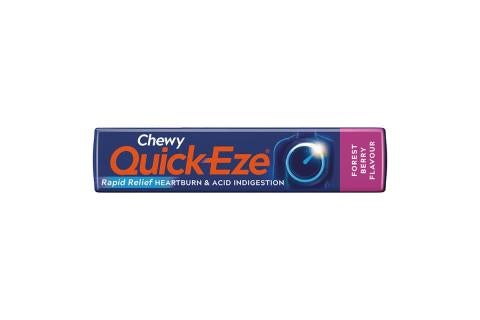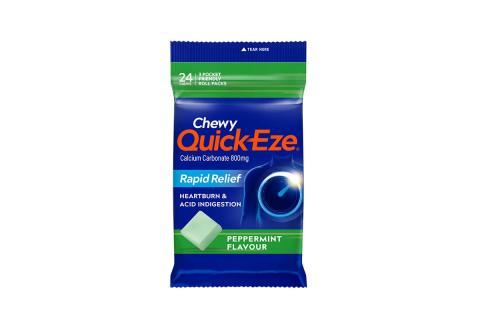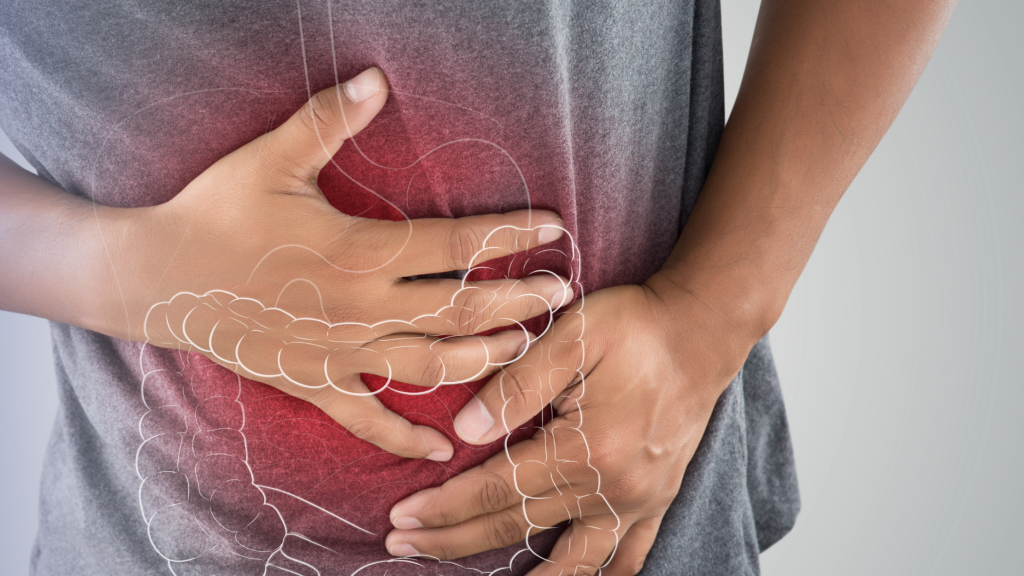Apple Cider Vinegar and Acid Reflux – What’s the Connection?
Is there a link between apple cider vinegar and acid reflux?
From social media comments to wellness blogs, some people suggest that a little diluted apple cider vinegar might ease acid reflux symptoms. But does it actually help?
Right now, there’s no scientific consensus to support using apple cider vinegar for acid reflux relief. While some people may say it helps them feel better, there’s not enough clinical evidence to recommend it as a go-to option. So, where does this idea come from?
This article takes a closer look at apple cider vinegar for acid reflux, including how it’s used, why some believe it may help, and what the risks might be. If you’re feeling unsure about where apple cider vinegar fits into your acid reflux symptoms management — or whether it should be on the list at all — we’ll help you out.
What is Apple Cider Vinegar – and Why Do People Use It?
Let’s rewind for a second. Before we dive any deeper into whether apple cider vinegar is good for acid reflux, it helps to understand what apple cider vinegar actually is — and why it’s gained such a rep in wellness circles.
Apple cider vinegar is made by fermenting apples, together with yeast and sugar1. First, the sugars in the juice turn into alcohol. Then, with the help of natural bacteria, the alcohol becomes acetic acid — the main component in vinegar, and what gives it its signature tangy and sharp smell.
You might see apple cider vinegar mentioned in blogs or online forums as something that could help with gut balance or support digestion. But again, these claims are mostly anecdotal and not backed by strong scientific evidence particularly when it comes to heartburn or acid reflux2.
Does Apple Cider Vinegar Help With Acid Reflux?
This is where things get a bit murky.
You might have heard someone say that apple cider vinegar helps with acid reflux. Maybe in a TikTok video, a health blog, or passed on by a well-meaning mate. But here’s the thing: there’s currently no scientific consensus supporting this claim3. Most of what’s out there is anecdotal, stories from people who feel it works for them.
The bottom line? While vinegar for acid reflux sounds like a natural solution, it’s not currently supported by science3. If you’re feeling unsure, it’s a good idea to explore other options with more proven results or check in with a healthcare provider before trying new remedies.
How Do People Use Apple Cider Vinegar for Acid Reflux?
If you’ve ever Googled “apple cider vinegar for heartburn acid reflux,” you’ve probably seen a few different suggestions — like drinking a spoonful mixed with water before meals. It’s important to repeat: these are anecdotal methods, not clinically recommended treatments3.
Some people dilute 1–2 teaspoons of apple cider vinegar in a large glass of water and drink it once or twice a day. Others might try it before eating, thinking it will “prep” their digestion.
It’s also worth noting that even diluted, apple cider vinegar is still pretty acidic2. For some, it might cause more discomfort than relief — especially if reflux is already a regular thing. And taking it straight (undiluted)? It could mess with your tooth enamel, irritate your throat, or just leave your tummy feeling worse off4.
So while you might come across DIY routines online or hear success stories from friends, it’s worth keeping in mind that this approach isn’t backed by research3. Everyone’s body reacts differently, and what seems to “work” for one person might do the opposite for someone else.
If you’re considering trying apple cider vinegar for reflux, it’s always smart to talk to a healthcare professional first. They can help you weigh up the risks and explore options that are more likely to support your symptoms safely.
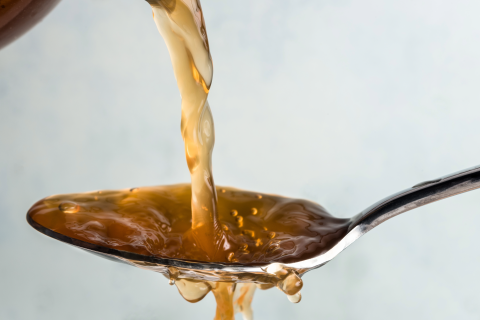
What Are the Risks of Using Apple Cider Vinegar for Acid Reflux?
Even though it’s natural, apple cider vinegar comes with some real risks — especially when it comes to acid reflux.
Apple cider vinegar is highly acidic1, and that acidity is where the trouble starts.
Here are a few things to keep in mind if you’re thinking about trying it4:
- Tooth enamel erosion: Regular use of vinegar can wear down your enamel over time, even when diluted. That’s your protective layer — once it’s gone, it doesn’t come back.
- Throat irritation: The acidity of vinegar may cause a stinging or burning feeling in your throat, especially if reflux is already irritating it.
- Worsened reflux symptoms: It might seem counterintuitive, but for some people, the acidity in apple cider vinegar could actually trigger or intensify reflux symptoms.
There’s also no standard dosage or method that’s been proven to reduce reflux symptoms — which means it’s hard to know if, how, or when it might actually be helpful. And without medical guidance, it’s easy to overdo it2.
So, while some people may be tempted to try apple cider vinegar for heartburn or acid reflux relief, the risks often outweigh the unproven benefits. That’s why it’s a good idea to speak with a healthcare professional before adding something like apple cider vinegar into your routine.
Quick reminder: We don’t recommend using apple cider vinegar for acid reflux. It hasn’t been clinically proven to help and may come with uncomfortable side effects2.
What to Use Instead of Apple Cider Vinegar to Relieve Reflux Symptoms
If you're not so sure about trying apple cider vinegar for heartburn or acid reflux (and honestly, it’s fair to have questions), you’re not alone. A lot of people exploring natural options are also curious about what else might help ease that burning feeling or unsettled digestion — without diving into anything too intense or unproven.
The truth? There’s no one magic fix. But there are a few things some people turn to when they’re looking to feel a bit more comfortable. Whether it’s over-the-counter support, daily tweaks, or lifestyle shifts, here’s a closer look at some options you might like to consider.
Over-the-counter support
If acid reflux symptoms are getting in the way — say, after a big meal or a cheeky snack before bed — many people reach for an antacid. Chewable products like Quick-Eze® are designed to help neutralise excess stomach acid, which may offer a bit of relief when things feel off.
For those who experience reflux more regularly, other options like H2 blockers or proton pump inhibitors (PPIs) are available over the counter. These are generally used to reduce the amount of acid the stomach produces, though results can vary from person to person.
It’s always a smart idea to speak with a healthcare professional or pharmacist if you’re unsure what might be right for your situation — they’ll be able to help guide you.
Everyday habits that may help
Sometimes, it’s not just what you eat, but how and when you eat that might affect reflux. If your symptoms tend to show up after meals, certain everyday shifts could be worth experimenting with — gently and without pressure.
Some people find that5:
- Eating smaller, more frequent meals feels better than big ones.
- Leaving a bit of space between dinner and bedtime helps avoid discomfort.
- Identifying and easing off on personal trigger foods (like spicy dishes or fizzy drinks) may reduce flare-ups.
- Staying upright for a while after eating can sometimes help things settle.
- Light movement or gentle activity after meals feels more comfortable than lying down.
It’s less about rigid rules and more about learning what your body responds to. Learn more about the lifestyle changes that could help you on your acid reflux journey, and foods to generally avoid as well.
Drinks that might go down easier
Let’s not forget drinks. Some people find that plain water or herbal teas (like chamomile or ginger)6 go down a little easier when they’re feeling off. Others steer clear of anything too fizzy, caffeinated, or acidic, as these might contribute to discomfort. Though again, it’s very individual.
If a certain drink seems to set off your symptoms, it could be worth cutting back and seeing if it helps. Everyone’s a bit different here, so it’s okay to experiment gently.
The Verdict on Apple Cider Vinegar and Acid Reflux Relief
Apple cider vinegar might sound like a simple fix for acid reflux, but there’s no strong evidence it actually helps, and it could make things worse for some people.
If you’re looking for relief, it’s better to stick with options that are backed by evidence, like over-the-counter antacids, lifestyle tweaks, and avoiding known triggers. And if your symptoms keep coming back, check in with a healthcare professional to explore what might work best for you.
[1] https://www.webmd.com/diet/apple-cider-vinegar-and-your-health
[2] https://www.medicalnewstoday.com/articles/324034#safety-of-apple-cider-vinegar-for-acid-reflux
[3] https://www.verywellhealth.com/apple-cider-vinegar-for-gerd-5181521
[4] https://www.healthline.com/health/digestive-health/apple-cider-vinegar-for-acid-reflux
[6] https://www.healthline.com/health/gerd/beverages#:~:text=Nonacidi
c%20beverages%20like%20plant%2Dbased,to%20travel%20into%20the%20esophagus.
Apple Cider Vinegar and Acid Reflux FAQs
Frequently Asked Questions
What does apple cider vinegar do to your stomach?
There’s no clear answer here. Some people think it helps with digestion, but that’s mostly anecdotal — not backed by clinical research on reflux.
Is apple cider vinegar good for heartburn?
Heartburn is a symptom of acid reflux, and using something acidic like vinegar might not be the best idea. Everyone’s different, so it’s best to check with a healthcare professional first.
Is apple cider vinegar good for acid reflux?
There’s no strong evidence to support this. While some people are curious about it, apple cider vinegar’s acidity could actually make reflux symptoms feel worse for some.
Is apple cider vinegar acidic?
Yes — very. That’s why it’s important to be cautious when using it, especially if you’re already dealing with digestive discomfort.
Can apple cider vinegar make acid reflux worse?
It might. Some people feel worse after using it, especially if they drink it undiluted. The acidity can be irritating some peoples’ throat or stomach.
